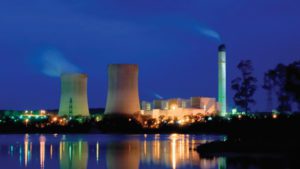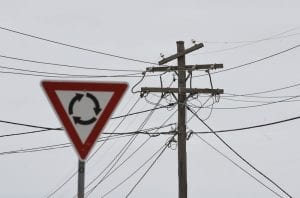
Some of Australia’s most iconic beer brands are set to be brewed using 100 per cent renewable energy, following the commitment by Foster’s Group and Carlton United Breweries parent company, Anheuser-Busch InBev, to buy all of its electricity from renewable resources by 2025, including on-site solar.
Joining the Googles and the Apples, Ikea, Walmart and Amazon, AB InBev’s decision to shift to renewables is not groundbreaking, but it is a big one.
According to a company statement in March, it will mean shifting some 6 terawatt-hours of electricity a year to renewable sources in the markets where AB InBev operates – including, of course, Australia.
The company said last week it could reach its target well before 2025. It expects to secure between 75-85 per cent of electricity through direct power purchasing agreements, from large-scale wind and solar farms – and the final 15-25 per cent mainly from on-site technologies like solar PV.
The huge effort has kicked off in Mexico, which is home to the company’s largest brewery, in Zacatecas. There, AB InBev has signed a PPA with Iberdrola for 490 gigawatt-hours a year, allowing it to meet all of its purchased electricity needs for production sites in the country.
For Mexico, the deal is expected to boost the country’s wind and solar capacity by more than 5 per cent, with Iberdrola building and installing 220MW of wind energy capacity onshore in the state of Puebla, aiming for production to begin in the first half of 2019.
For Australia, the flow-on effect of InBev’s renewables commitment also promises to be significant, and will likely result in PPAs for large-scale wind or solar farms, as Telstra has done for a 70MW solar farm in Queensland, and Sun Metals is also doing for a 116MW solar farm.
The brands coming under the Foster’s Group’s umbrella include the iconic Australian exports, Foster’s Lager, Crown Lager and Tasmanian staple Cascade. The beers of Victorian-based giant, Carlton United Breweries (CUB), are also in there, including Victoria Bitter and Carlton Draught, and other boutique brands such as Yak, Matilda Bay and Redback.
One Step Off The Grid spoke to CUB on Tuesday, who confirmed that the Australian brewer would soon be announcing its own renewable energy projects and/or PPAs, in line with AB InBev’s commitment, but had no detail on these yet.
The news comes at a significant time for Australia, with no shortage of proposals for large-scale solar and wind farms, and as big corporates start to wake up to the value of renewable energy.
Corporate PPAs are considered to be an important driver for new wind and solar farms, particularly as the large electricity retailers fill their requirements under the 2020 renewable energy target.
However, a recent ARENA report found that less than half of Australian businesses actually sourced any renewable energy at all; and when they did, it was for less than 10 per cent of their needs.
But this is changing – even if that change is getting little to no mainstream media attention. And it is changing not just because of companies’ commitments to fighting climate change, but because it is smart business.
Take the new owners of South Australia’s ageing Whyalla steel plant. They are turning to wind, solar and storage, and are even considering going 100 per cent renewable energy. Why? Because they say the key to making the mine viable is to turn to green energy.
Certainly, smaller businesses are already onto it. And in the business of brewing beer, there a numerous “craft breweries” dotted around suburban and regional Australia that are already powered by rooftop solar.
But of course, it’s a little more complicated than throwing panels on the roof in the case of huge global companies like AB InBev.
Paul Curnow, from legal firm Baker McKenzie, told One Step last month that corporate power purchase agreements will be a major part of the plan for big energy users like AB InBev. And that an increase in the number of major deals like this could fast-track Australia’s energy market transition.
“I think we will see a lot more PPA contracting,” Curnow said. “There is real disruption out there. I don’t think we will have the same retailers we have now in 10 years time,”
It means, however, that some businesses may have to take an element of spot market risk in large off-takes, as Telstra is doing in its investments. “It’s not insurmountable but it can be a “cultural issue”, Curnow says.
For AB InBev, the new commitment is expected to make it the largest corporate direct purchaser of renewable electricity, globally, in the consumer goods sector, reducing its operational carbon footprint by 30 per cent.
The company has also joined RE100, a global initiative of influential businesses committed to using 100 per cent renewables, led by the Climate Group in partnership with Carbon Disclosure Project.
“Climate change has profound implications for our company and for the communities where we live and work,” said AB InBev CEO Carlos Brito in the March statement.
“Cutting back on fossil fuels is good for the environment and good for business, and we are committed to helping drive positive change. We have the opportunity to play a leading role in the battle against climate change by purchasing energy in a more sustainable way.”
This article was originally published on RenewEconomy’s sister site, One Step Off The Grid, which focuses on customer experience with distributed generation. To sign up to One Step’s free weekly newsletter, please click here.








